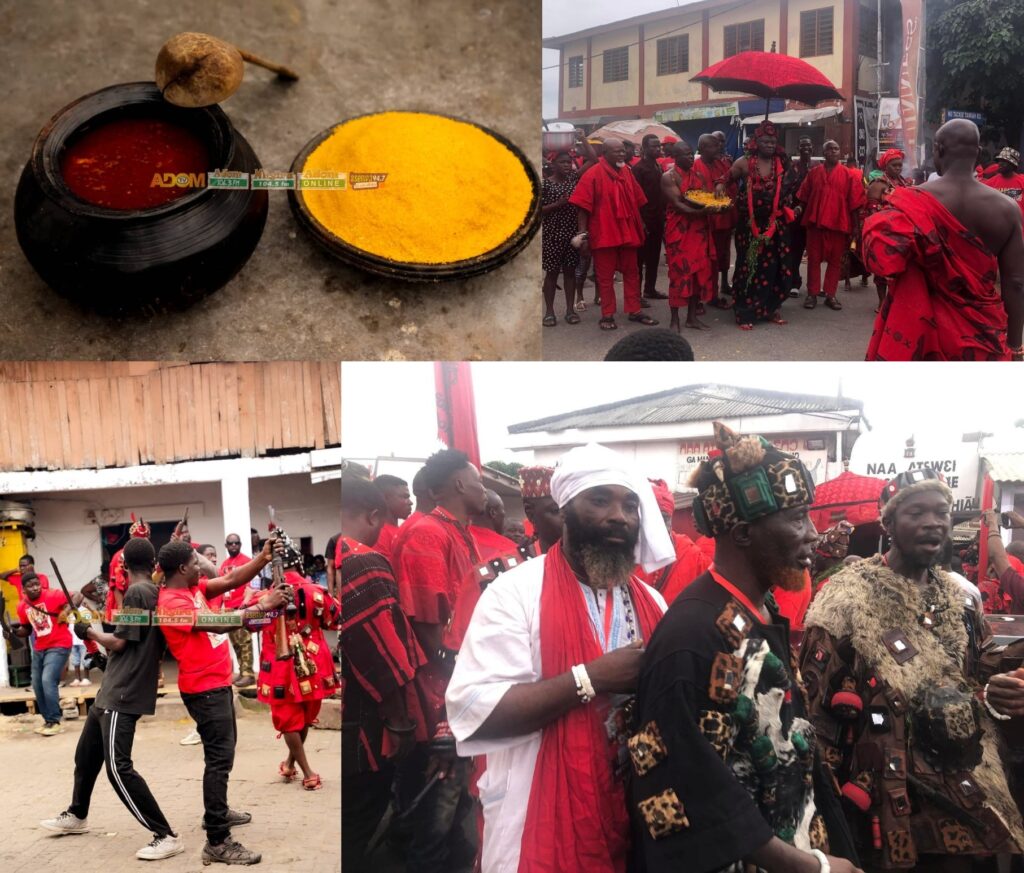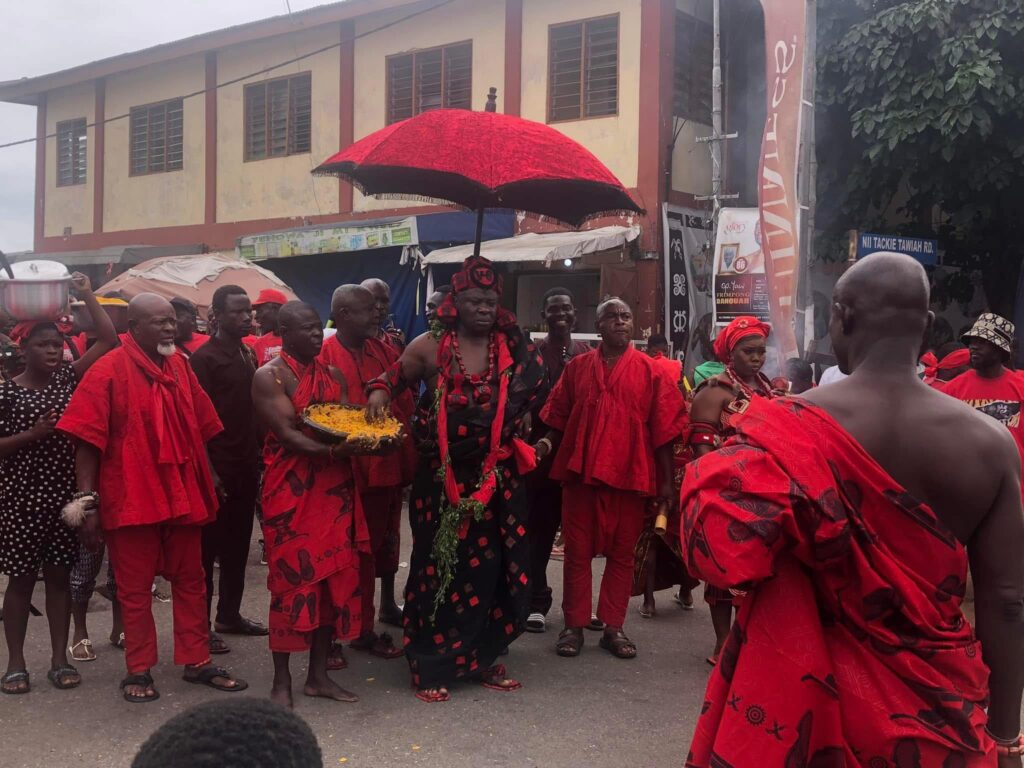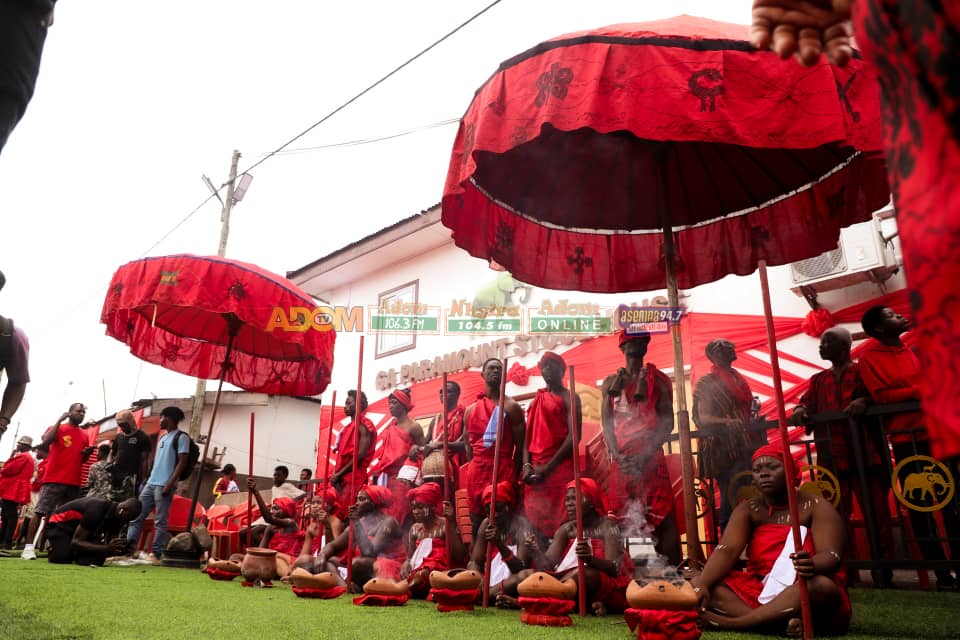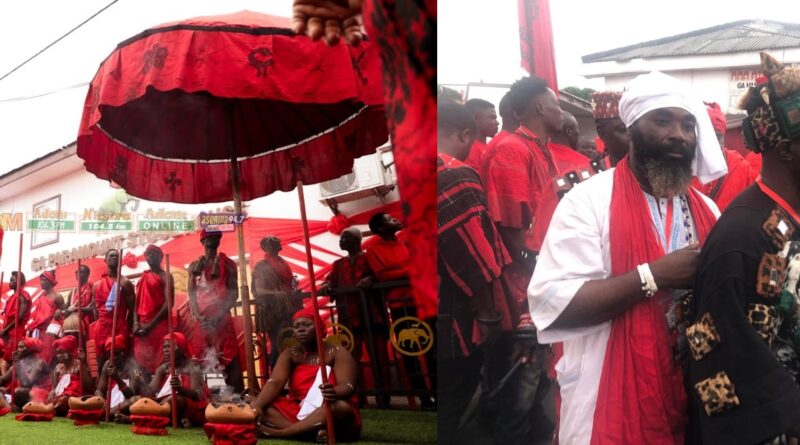Ga Mashie Celebrates Homowo With Colour, Rituals, and Unity

Ga Mashie celebrates Homowo in James Town and Bukom with colourful rituals, chanting, drumming, and musket firing on Saturday, August 17, 2025. Thousands of residents, visitors, and members of the diaspora filled the streets to witness the annual festival, which means “hooting at hunger.”
Women in red cloth carried steaming kpokpoi, while children danced joyfully alongside community processions. The festive spirit created an atmosphere of unity and pride. Elders explained that the rituals symbolised resilience, as the Ga people triumphed after famine during their historic migration to present-day Accra.
At the centre of the celebration stood the Ga Mantse, Nii Tackie Teiko Tsuru II. He performed the sacred sprinkling of kpokpoi across 21 royal houses, a ceremony that marked the festival’s official climax. His actions, witnessed by chiefs, elders, and residents, reaffirmed cultural traditions that continue to bind Ga communities together.
As customs require, the Gbese Mantse, Nii Ayi-Bonte II, led his procession from his palace. He sprinkled kpokpoi through principal streets to Ussher Fort, retracing ancestral paths walked by former leaders. Crowds cheered as the rituals unfolded, while tourists documented the spectacle through photos and videos.
Homowo is more than feasting and music. The season offers Ga families the chance to resolve disputes, heal divisions, and strengthen communal ties. Elders reminded celebrants that peace and unity remain as essential today as they were during the community’s early struggles.
The festival traditionally begins in May with maize planting, grown specifically for kpokpoi. A thirty-day ban on noisemaking follows, restricting drumming, singing, and loud music. When the harvest season arrives, the rituals culminate in August, led by traditional rulers who sprinkle kpokpoi to honour ancestors.
This year’s Homowo once again highlighted the deep cultural pride of Ga Mashie. The colourful sights, sacred rituals, and powerful community spirit ensured the festival lived up to its heritage of resilience and joy.
Please don’t forget to leave a review or a comment. Explore more by reading updates on https://theghanadiscourse.com/






